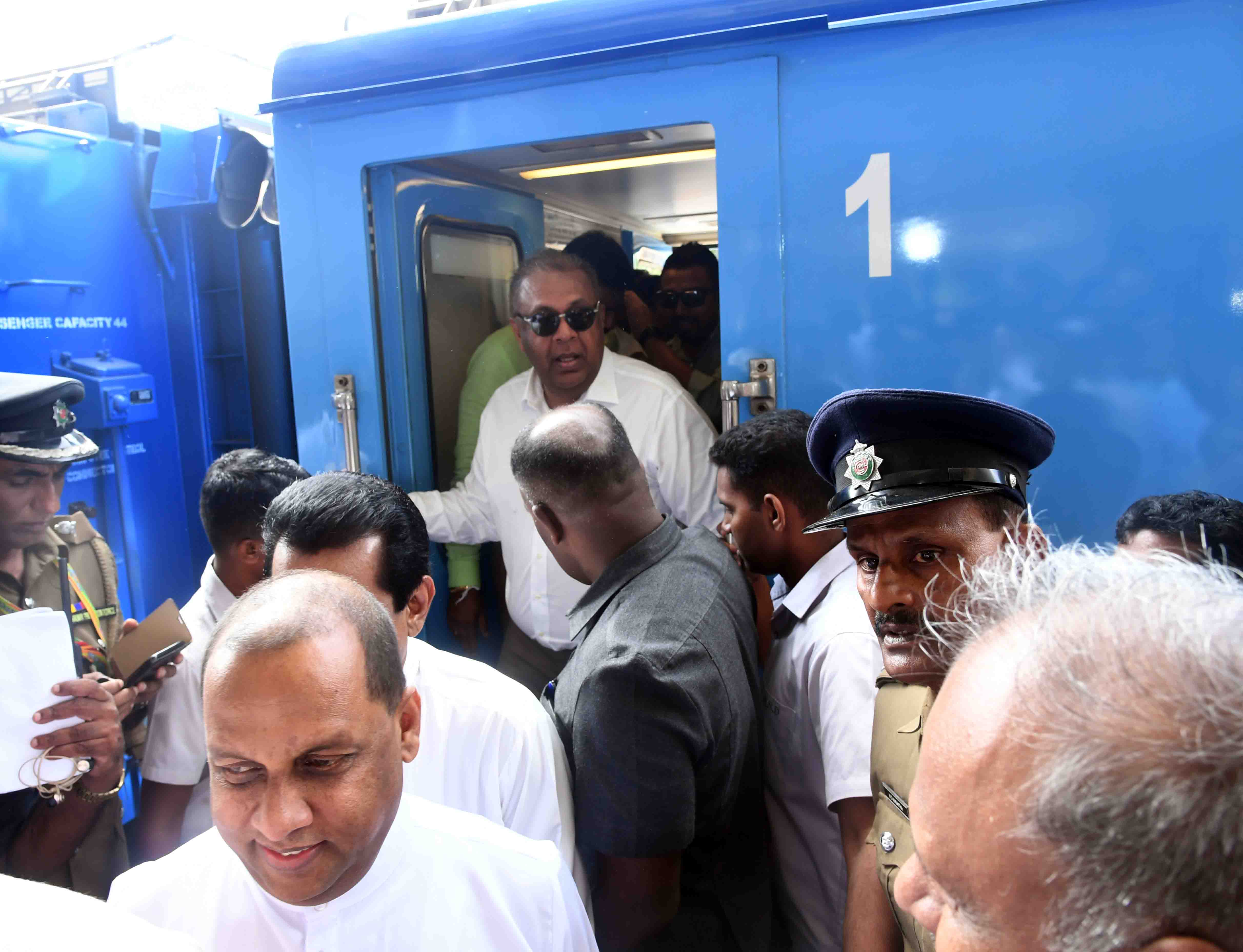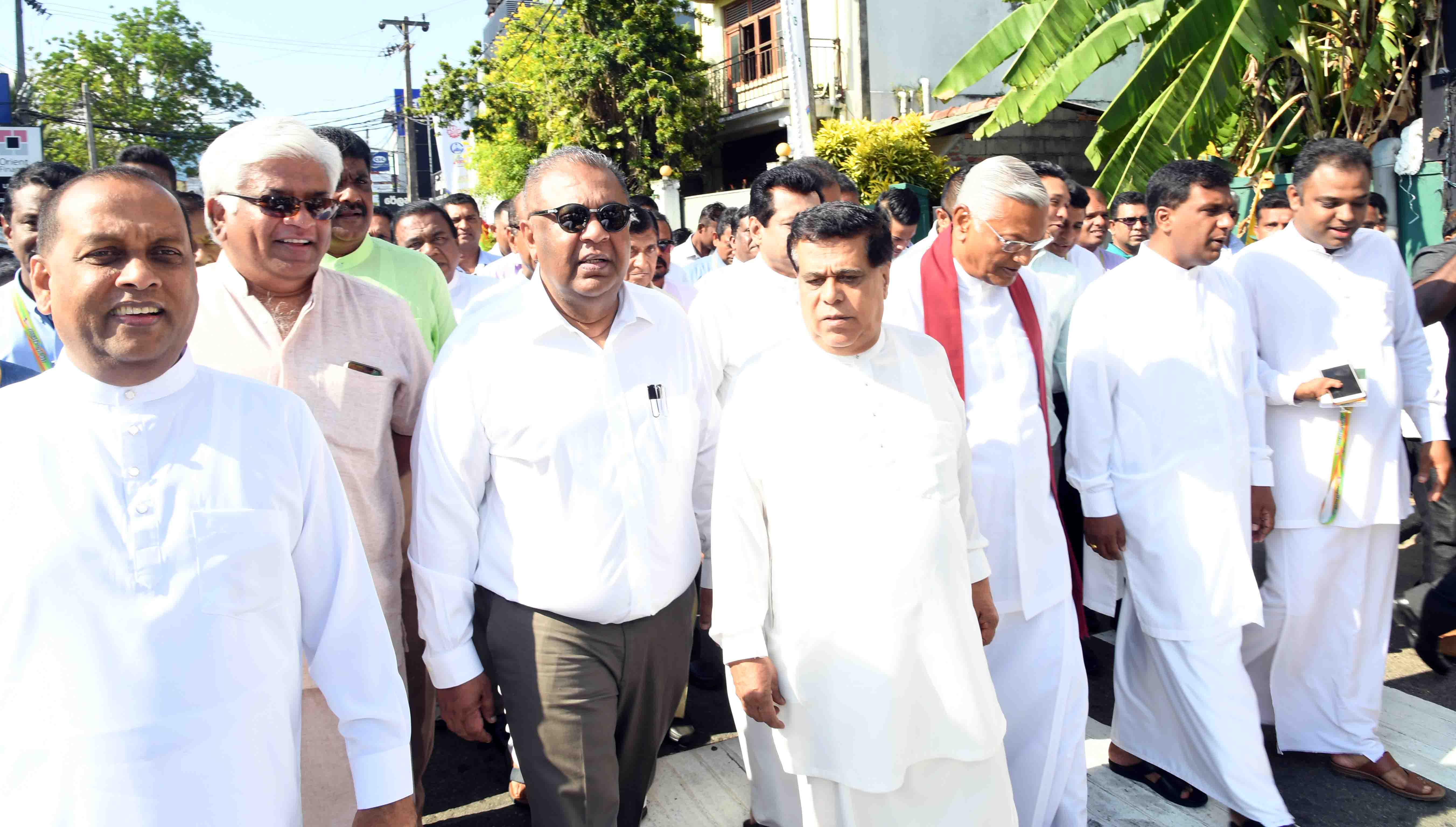News
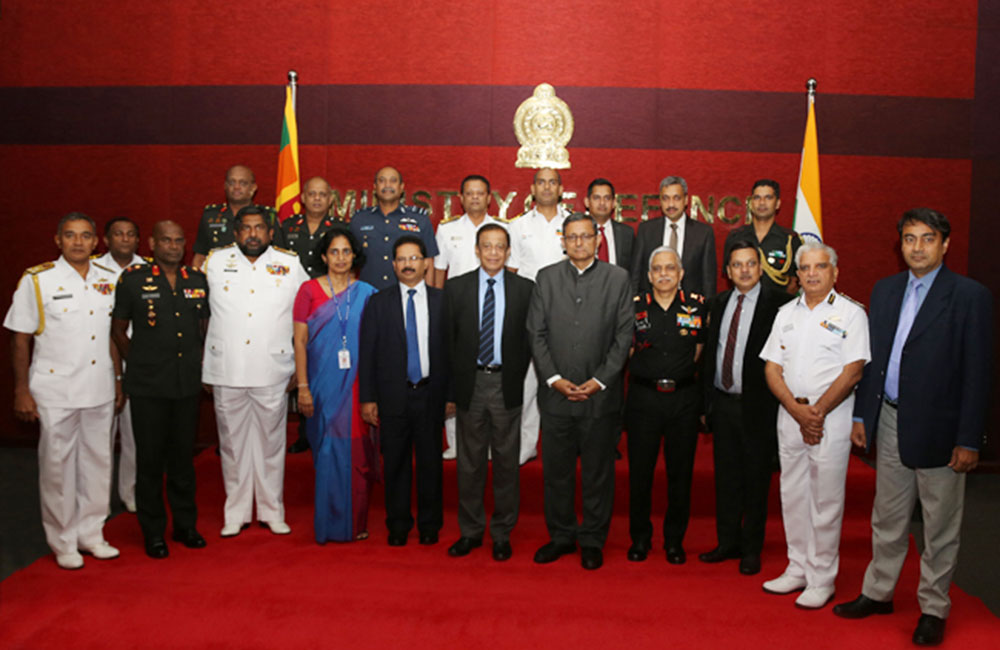
6th Indo - Sri Lanka Defence Dialogue underway
The Indian delegation, led by Defence Secretary Sanjay Mitra participated at the 6th Indo-Sri Lanka Defence Dialogue at the invitation of secretary to the Ministry of Defence Hemasiri Fernando, in Colombo, today (08).
Since its inception in 2012, the annual Indo - Sri Lanka Defence Dialogue reviews the entire scope of Defence cooperation between the two countries while expanding its activities into new areas of interests.
During the meeting, both parties had lengthy discussions on matters of mutual interest and bilateral defence cooperation.
Deputy High Commissioner of India to Sri Lanka, Chief of Defence Staff, Commanders of the tri forces, senior officials of both defence ministries and military representatives of both parties participated at the annual meeting.
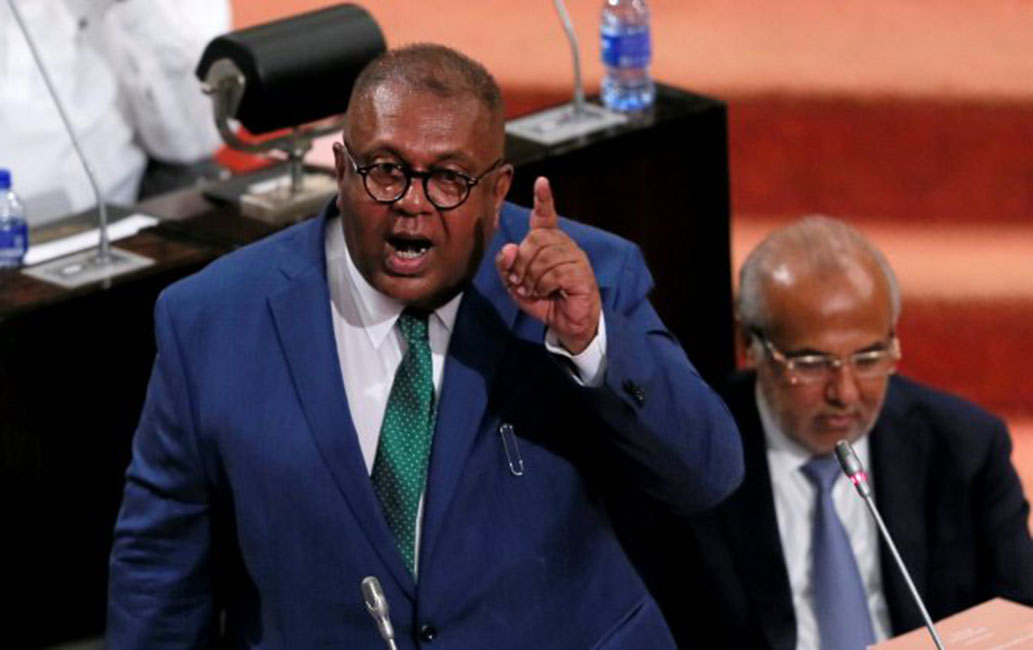
Final vote on Budget 2019 passed in Parliament
The vote for the Third Reading of the Budget 2019 which was presented by Finance Minister Mangala Samaraweera under the the theme of 'Empowering the people;nurturing the poor' was passed today in Parliament with 119 votes in favour and 74 votes against.
Samaraweera in his wind up speech said that during the final days of 2018, Sri Lanka was in a precarious situation, the likes of which had never been seen in our post-independence history. Without a budget in place, Sri Lanka was within weeks of defaulting on sovereign debt for the first time in its history, the state was not in a position to pay salaries, pensions, and welfare payments, come January 1st 2019, he pointed out.
"The judiciary and independent institutions that our government helped foster, had the fortitude and resilience to stand up to the anti-democratic forces that grabbed power for 51 days," he said.
Samaraweera said that it has been an uphill battle to stabilize an economy that was in disarray by December 2018 and added that he was pleased to state that we have made significant progress towards this end.
"We are now seeing investments return to all aspects of our economy. There has been Rs. 10 billion net inflows of foreign investments into government securities since January, a strong recovery following the exodus of Rs. 57 billion during the 51-day crisis," he said.
As a result of the improved fundamentals, the rupee has now appreciated by 4.5% since January 2019.
"The Rupee is among the top 3 best performing currencies in the world in 2019", Samaraweera said.
Following 3 credit downgrades during the 51 day crisis and imminent debt default, the Finance Minister said that it was indeed creditable the way in which the government was able to regain the confidence of global markets and refinance at a favourable rate.
"Having stabilized the economy once again, the government’s priority now is to rejuvenate economic growth. Whilst Enterprise Sri Lanka’s concessional credit schemes are already stimulating small business investment with over Rs. 70 billion in new finance for SMEs and entrepreneurs, several other measures are being undertaken in parallel", he added.
Samaraweera also said that the Gampereliya programme is once again moving ahead at pace, with significant investments going into rural roads, rural markets, minor irrigation, places of worship, and other rural infrastructure.
"Gampereliya is directly injecting cash into the rural economy – it is doing so in a manner that builds the economic capacity of rural Sri Lanka, by improving connectivity to markets, enhancing drought resilience, and building other productive infrastructure", he said.

EU urges Sri Lanka to maintain moratorium on death penalty
The European Union (EU) called on the Sri Lankan Government to maintain its moratorium on the death penalty in line with its vote at the 73rd United Nations General Assembly in December 2018.
"While acknowledging that combatting the proliferation of drugs is a serious challenge for countries around the world, and that action to counter the illicit drug trade is important and necessary, the evidence does not support the argument that the death penalty is an effective deterrent", the statement said adding that the EU is prepared to share their experiences in addressing the threat posed by drugs.
The EU further said that more than two-thirds of countries around the world, with a variety of legal systems, traditions, cultures and religious backgrounds, have either abolished the death penalty or have refrained from practicing it.
"The death penalty is an unacceptable denial of human dignity and integrity", the EU said.
Today's statement from the EU comes a week after president Maithripala Sirisena announced that dates have been set for the country’s first executions in 43 years amid rising alarm over drug-related crimes.
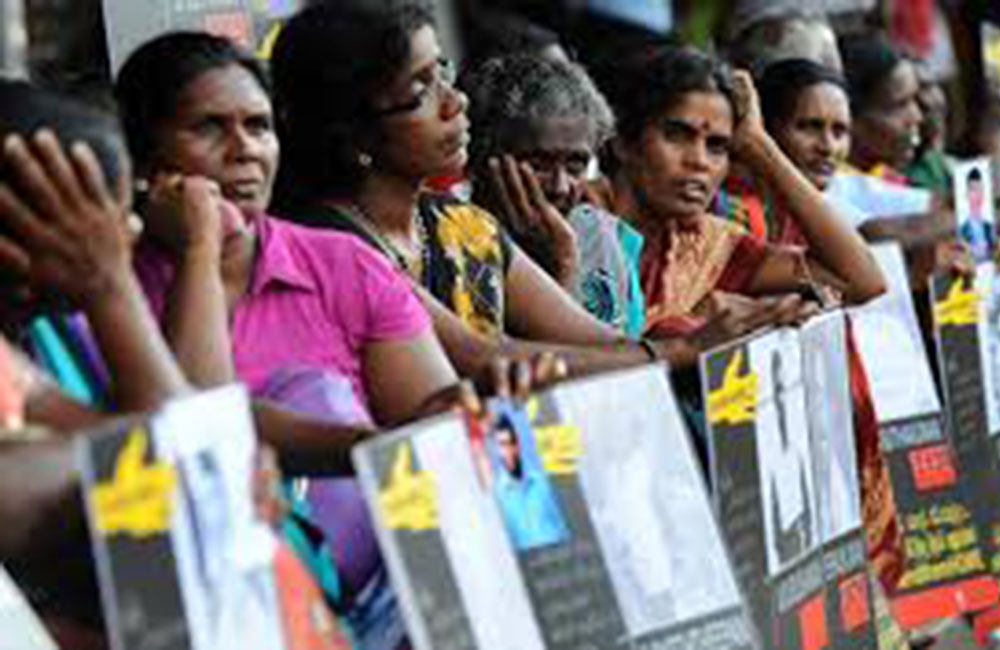
Commissioners appointed for the Office of Reparations
Following the passage of the Office for Reparations Act No. 34 of 2018 on 09th October 2018, the Constitutional Council have appointed commissioners for a three-year period, the Secretariat for Coordinating Reconciliation Mechanisms (SCRM) said in a statement today.
Accordingly, the following members have been appointed.
1- Ms. Dhara Wijethilake – Chairperson
2- Mr. A. A. Fathihu – Member
3- Col. (Rtd.) W.W Rathnapriya Bandu – Member
4- Dr. J. M Swaminathan – Member
5- Ms. Sumithra Sellathamby– Member
The Commissioners were selected in an open and competitive process conducted by the Constitutional Council (CC) of Sri Lanka and were nominated by them to the President for appointment.
An allocation of LKR 700 million was made for the establishment and staffing of the Office for reparations through Sri Lanka’s National Budget for 2019.
The Office for Reparations is an independent authority tasked with formulating, designing and implementing reparations policies aiming to redress victims who suffered violations in the course of past conflicts in Sri Lanka. The Office for Reparations can provide individual or collective reparations and make recommendations to the Cabinet of Ministers.
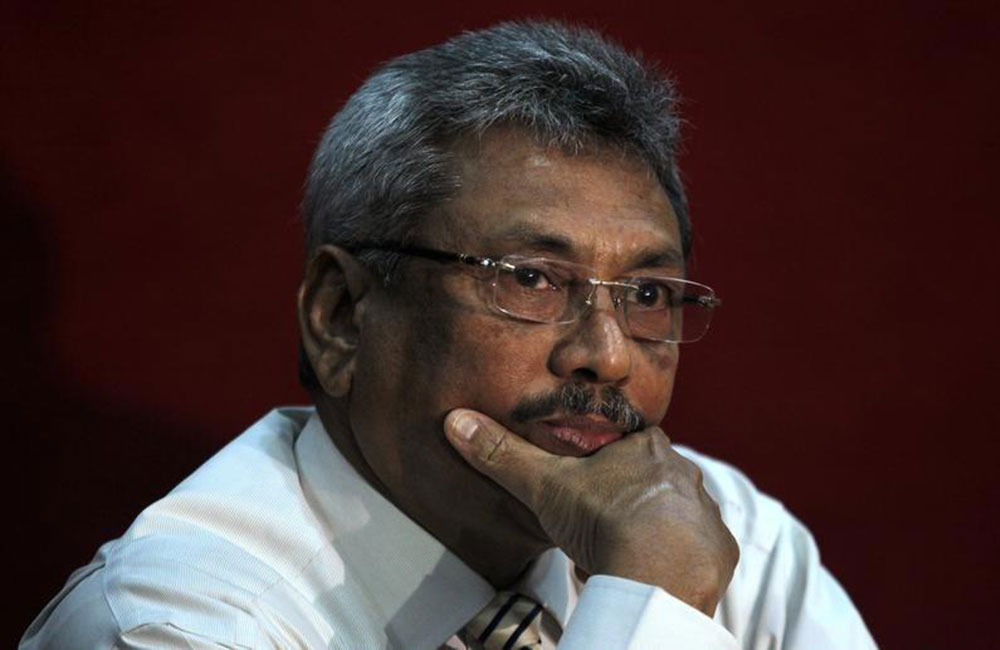
Two cases filed against Gotabaya; issued summons by US Court
The International Truth and Justice Project (ITJP) together with the US law firm Hausfeld have filed a civil damages case in California against former secretary to the ministry of defense Gotabaya Rajapaksa.
The case was filed on behalf of Roy Samathanam in the Central District Court of California, ITJP said in a press statement today.
ITJP claimed that Canadian national, Roy Samathanam was detained in Sri Lankan in September 2007 by the Terrorism Investigation Division of the Sri Lanka police, who reported directly to Rajapaksa.
Further the statement claimed that Samathanam was "physically and psychologically tortured and forced to sign a false confession before being released in August 2010 on a plea deal and payment of a fine. In 2016. Samathanam won a UN human rights committee case but Sri Lanka has failed to abide by the compensation ruling."
Accordingly, ITJP said that summons were issued on Gotabaya Rajapaksa yesterday (Apr 07) night after private investigators tracked down Rajapaksa who was on holiday.
Notice was officially served to Rajapaksa at a parking lot of Trader Joe's store in California.
At the same time ITJP said notice was also served in a separate case filed by another organisation on behalf of Ahimsa Wickrematunge the daughter of slain journalist Lasantha Wickrematunga.
“Mr. Rajapaksa has to give up his US citizenship to be able to stand in presidential elections so this was probably the last chance for a long time to begin to hold him accountable,” ITJP’s executive director Yasmin Sooka was quoted as saying.
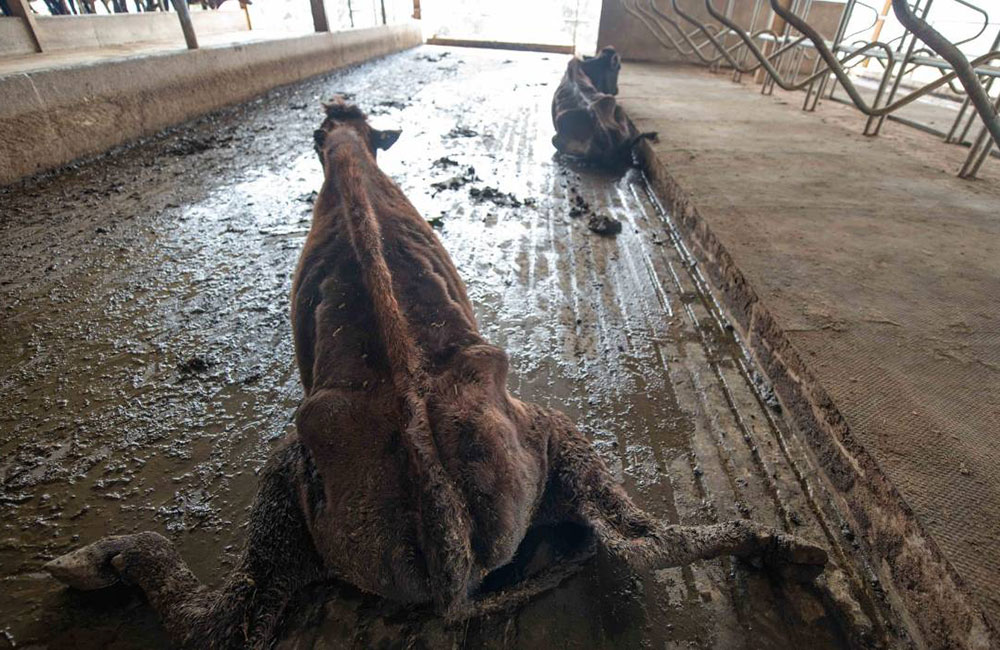
Thousands of cattle exported to Sri Lanka being housed in 'horrific conditions'; 500 already dead
The Australian company behind a live export programme which allegedly left hundreds of cattle dead says it is unlikely to ship any more animals from New Zealand under the scheme.
Animal export company Wellard is contracted to deliver 20,000 dairy cows to Sri Lanka under a programme set up to improve the country's fresh milk supply.
It has so far shipped 2000 cattle from New Zealand and a further 3000 from Australia. About 500 of the 5000 animals are reported to have died. 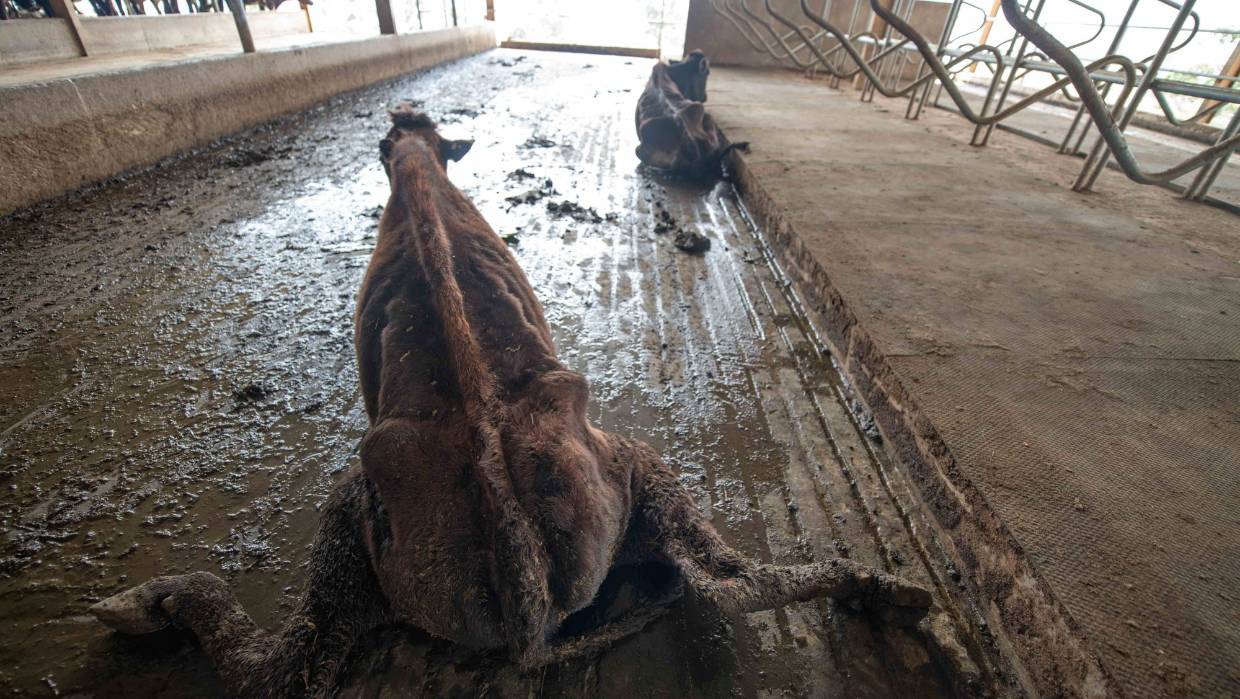 Cattle exported from New Zealand and Australia to Sri Lanka are being housed in horrific conditions, a programme broadcast in Australia alleges.
Cattle exported from New Zealand and Australia to Sri Lanka are being housed in horrific conditions, a programme broadcast in Australia alleges.
Six cattle from New Zealand died on the voyage to Sri Lanka, data from the Ministry for Primary Industries (MPI) shows.
A spokesperson for the Western Australian company said it was unlikely any more cattle would be sent from New Zealand under the programme.
"Any future consignments of cattle, which will only occur after changes have been made to the programme, are likely to be from Australia," a spokesperson for the company said.
"This shipment was subject to all of our usual export approval procedures. Our verification services inspectors were involved in our usual role ensuring animal welfare requirements were met before and during transport.
"We are of course very concerned to hear of any animals in poor conditions, and it's even more worrying to hear of people living in poor conditions and struggling to care for animals that are their livelihood", the company sai.
In a tweet on Thursday, Minister of Agriculture Damien O'Connor said he had instructed MPI to conduct a "thorough review" of all proposed live exports from New Zealand to ensure animal welfare obligations would be met.
But animal welfare group Safe said it was time O'Connor stopped "sitting on his hands" and put a stop to live exports of breeding animals.
"O'Connor has a choice. He can choose whether New Zealand continues to export vulnerable cows into such appalling conditions," Safe ambassador Hans Kriek said
"Wellard is planning to export a further 15,000 cows, but O'Connor can choose to protect New Zealand's reputation and refuse to export any more cows."
New Zealand's largest company Fonterra contracts a number of Sri Lankan farmers to supply it with milk, although there is no suggestion these farmers are involved in animal maltreatment.
Wellard said it would check with its Sri Lanka representative as to whether any of the exported cows ended up on Fonterra supply farms.
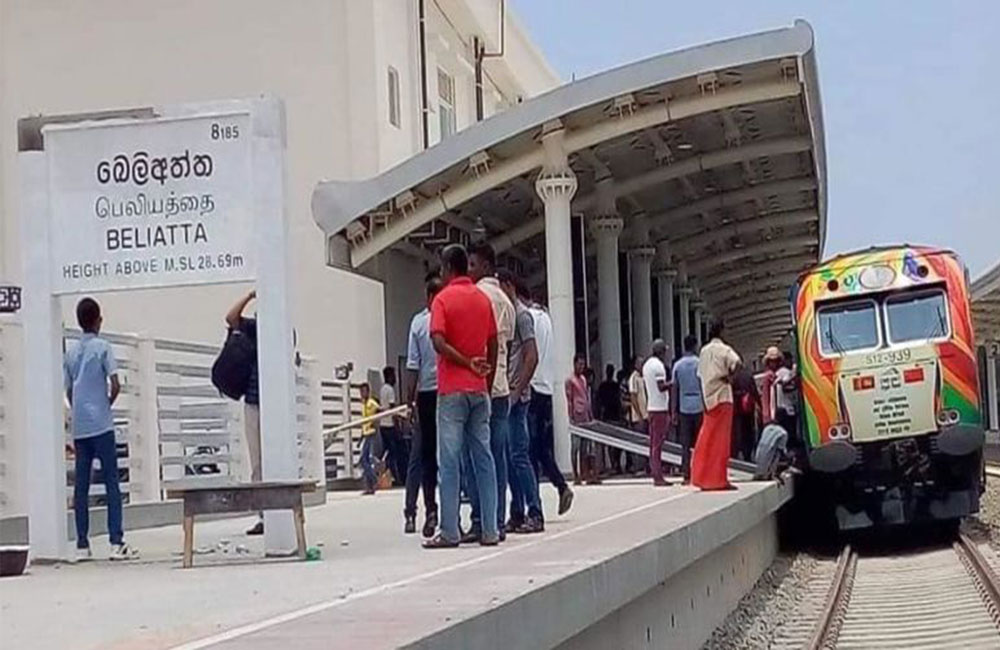
Matara - Beliatta railway extension declared open
The Matara - Beliatta railway line was declared open today by Transport and Civil Aviation Minister Arjuna Ranatunga. Finance Minister Mangala Samaraweera together with Government and Opposition MPs also attended the event.
Seven trains have been scheduled to start form Beliatta Station. One of them will be plying up to Galle and four trains will travel up to Maradana. The two remaining trains will be heading to Jaffna and Vavuniya. Three main stations, Kakanadura, Bambarakanda, Wawurukannala and two substations Piladuwa and Weherahena are constructed between the two destinations for the convenience of the public.
Construction of the Matara to Beliatta section at a cost of USD 278 million was carried out by a Chinese company with the funding from China Exim Bank. Supervision is being carried out under the guidance of the Central Engineering Bureau.

AIIB approves US$ 280 million loan aimed at improving living conditions in SL
The Asian Infrastructure Investment Bank (AIIB) said on Friday it has approved loans worth $280 million for its first two projects in Sri Lanka, aimed at improving living conditions in the country.
A $200 million loan will improve housing conditions for low-income communities in Colombo by building affordable housing and redeveloping land while another loan of $80 million will be used to reduce the risk and damage from landslides in Sri Lanka, Xinhua news agency quoted an AIIB statement as saying.
Investment in the Urban Regeneration Project will support the construction of about 5,500 housing units and other related infrastructure in Colombo.
The housing units will be provided to individuals and families currently living in under-served settlements that are impacted by poor sewer and solid waste management systems and dilapidated housing structures.
"Providing affording housing will improve the quality of life for those in need in Colombo," said AIIB Vice President and Chief Investment Officer D.J. Pandian.
"Smarter urban planning will also enable the city to attract more foreign investment and increase its potential as an economic hub for the country."
The investment to reduce landslide risk will support the design and construction of mitigation or protection measures where landslides have already occurred or are at risk of occurring.
It will also support the review and strengthening of the policy and regulatory systems for landslide management at local and national level.
"With global warming contributing to increased risk of both the number and intensity of climatic events in Sri Lanka, landslide mitigation efforts are an important part of ensuring the sustainability of vital infrastructure," said AIIB Director General Supee Teravaninthorn.
"Our involvement in this project will help us to develop capacity in disaster mitigation, so we can support other members in the planning and implementation of climate-resilient and major disaster prevention projects."
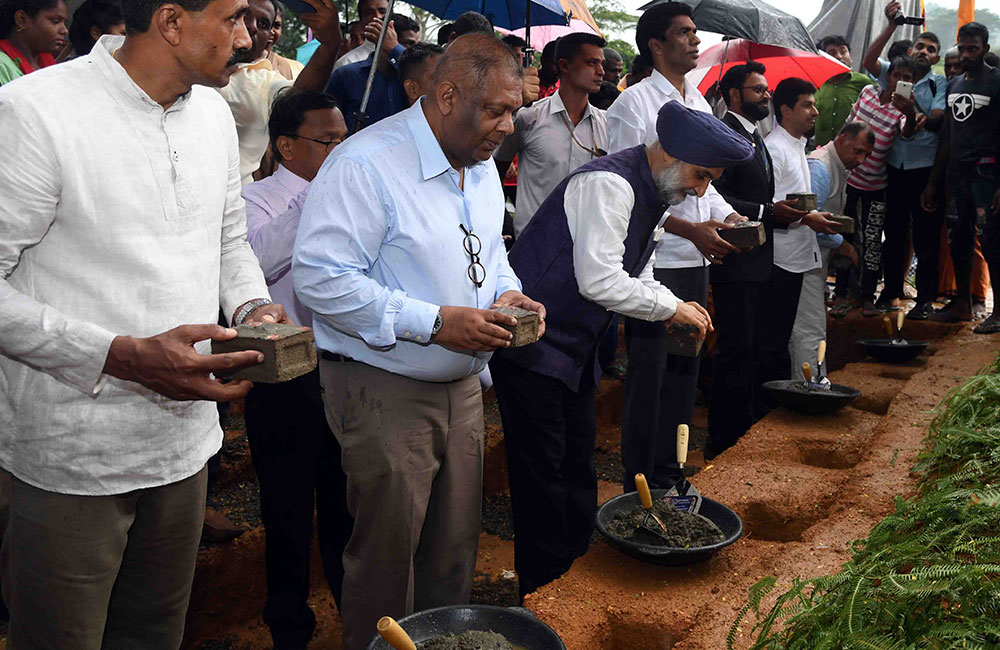
Indian Housing Project extends to Matara
In a special event held on Saturday (06), at Indola Estate in Matara, Indian High Commisioner Taranjit Singh Sandhu along with Minister of Finance Mangala Samaraweera and Minister for Hill country New Villages, Infrastructure and Community Development Palani Digambaram, laid foundation stone for 50 new houses being constructed under the Indian Housing Project.
Members of Parliament and Southern Provincial Council, senior Government officials as well as officials from Plantation Human Development Trust (PHDT), Plantation and Estate Management and a large number of people from the Indola Estate participated in the ceremony.
High Commissioner in his remarks, reiterated Government and people of India’s commitment to participate with the people of Sri Lanka in their journey towards prosperity and development.
Out of the 14000 houses committed by the Government of India in the plantation areas, over 1000 houses have been completed and construction of 3000 is currently underway. As soon as the land for the remaining houses is identified by the Sri Lankan Government, construction of these houses will be undertaken. The locations of these houses are in Central and Uva Provinces covering Nuwara Eliya, Badulla, Kandy, Mathala and Monragala and also in Sabragamuva and Southern Provinces including Galle, Matara, Kegalle and Ratnapura.
These houses are being constructed under an innovative owner driven process with technical support from independent implementing agencies on behalf of the Government of India viz. UN Habitat, International Federation of Red Cross and Red Crescent (IFRC)/Sri Lanka Red Cross (SLRC), Habitat for Humanity, Sri Lanka and National Housing Development Authority of Sri Lanka. IFRC/SLRC is the implementing agency for the houses being constructed at Indola Estate.
In addition to the houses under the Indian Housing Project, 1200 more houses are being built seperately under 50 model villages all across the Southern Province including Galle, Matara and Hambabtota. The 1990 free Emergency Ambulance Services under Indian assistance was first implementedin Southern and Western Provinces and followong its tremendous success, it is currently being expanded Island wide.
India has undertaken more than 70 people-oriented development projects in various fields including health, education, housing, skill development, infrastructure, vocational training among others, all across the country including the largest University Auditorium in Ruhuna University in Matara. About, 20 such projects are currently under progress. The overall development portfolio of Government of India in Sri Lanka is close to US$ 3 billion out of which US$ 560 million are in grants.
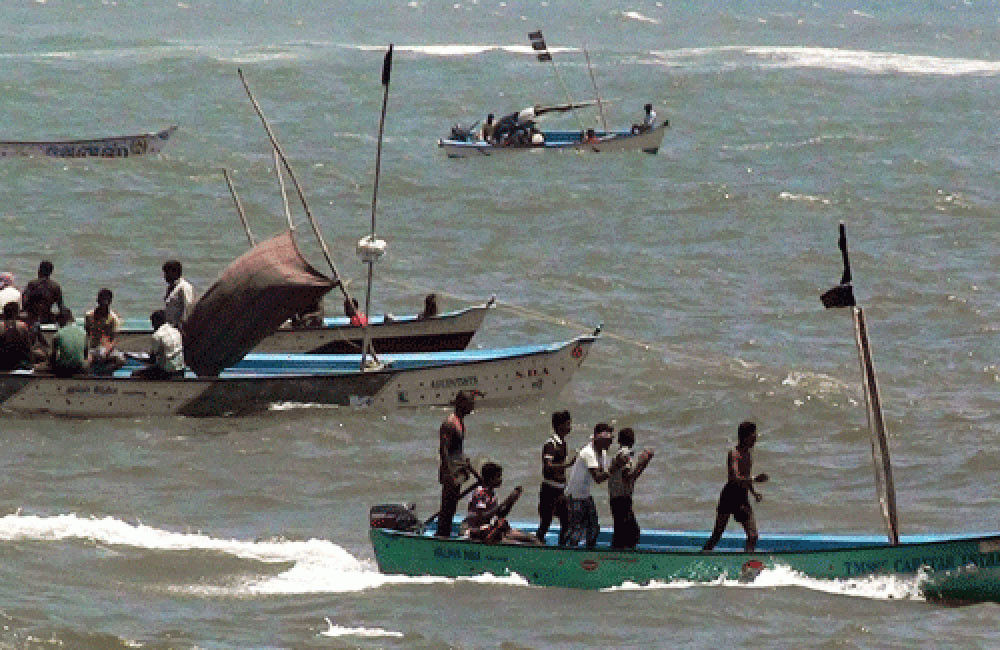
18 Indian fishermen arrested for poaching in Lankan waters
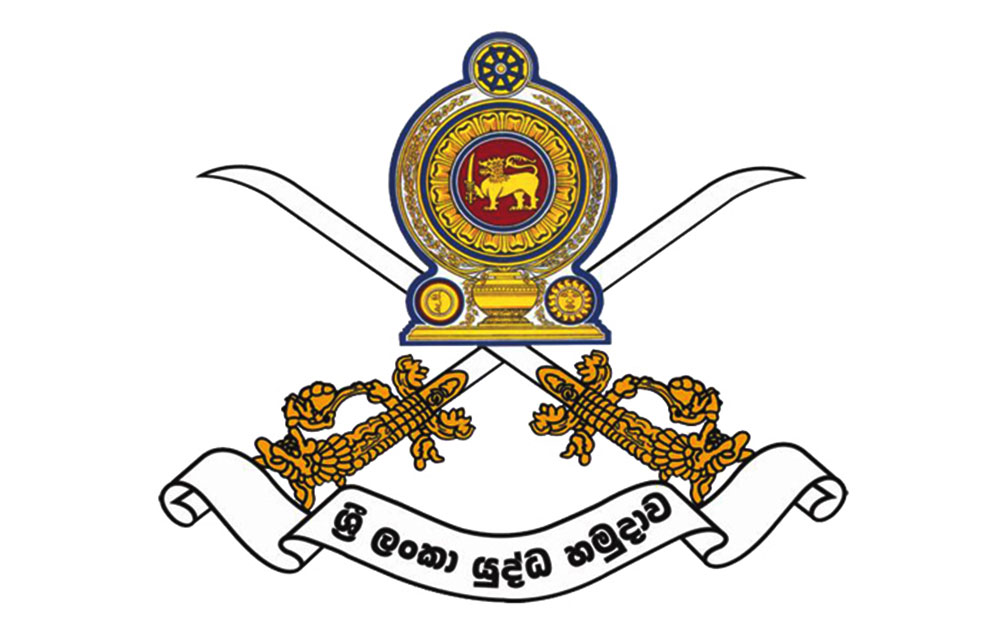
Army offers general amnesty period for absentees
Army offers general amnesty period for absenteesSri Lanka Army (SLA) in a statement today said that a General Amnesty period has been offered from 22 April to 10 May 2019 to all Army absentees, enabling them to receive discharge from service under four categories.
The Army said that the amnesty has been offered by the President, in his capacity as Commander-in-Chief of the Armed Forces and Minister of Defence, on the recommendations of the Ministry of Defence and the Commander of the Army.
This newly-devised General Amnesty under the 1st Phase in the year to begin on 22 April 2019 accordingly facilitates the discharge of all Army Officers who are absent without leave (AWOL) for more than 21 days, Other Rankers who are absent for more than 6 months (180 days) by 22 April 2019 and those absentees willing to rejoin the Army after their absence of more than 6 months.
Considering practical necessities, discharge of those absentees is to be implemented under four categories as mentioned below;
Category No - 1:
Those long-term absentees who do not owe any money to the Army or are not implicated in any legal matter are eligible to receive a direct discharge, irrespective of paraphernalia (Q items), issued to the subject or any other legal matters, involved in civil courts.
Category No - 2 :
Those who have no legal obligations and are capable of settling their loans against remaining balance money in the Army Benevolent Fund, Suwa Sahana Fund and Compulsory Savings Fund or through the guarantors or relatives, can be discharged, irrespective of paraphernalia, issued to the subject or any other involvement in legal issues in civil courts.
Category No - 3 :
Under this category, those absentees without any legal issues or any loans that should be paid back to the Army or whose loans can be settled against their balances in the Army Benevolent Fund, Suwa Sahana Fund and Compulsory Savings Fund either from the guarantors or the relatives, are eligible to receive a discharge from the Army.
Category No – 4 :
Absentees who have been charged for indiscipline or accused of other malpractices or criminal acts could also receive a discharge in accordance with existing Army legal procedures and regulations.
Likewise, all paraphernalia (‘Q’ items) issued to the absentees and any of their involvement in non-Army related civil court cases, would in any way not be considered under all four categories expecting to receive discharge from the Army as specified above.
Similarly, all those absent for more than 6 months from service but are still willing to rejoin, will be considered for reinstatement if requested so.
Under this new programme for delisting, absentees within this General Amnesty period are requested to directly reach their respective Regimental Headquarters either in person or by communication to receive their discharge from service within the specified period.
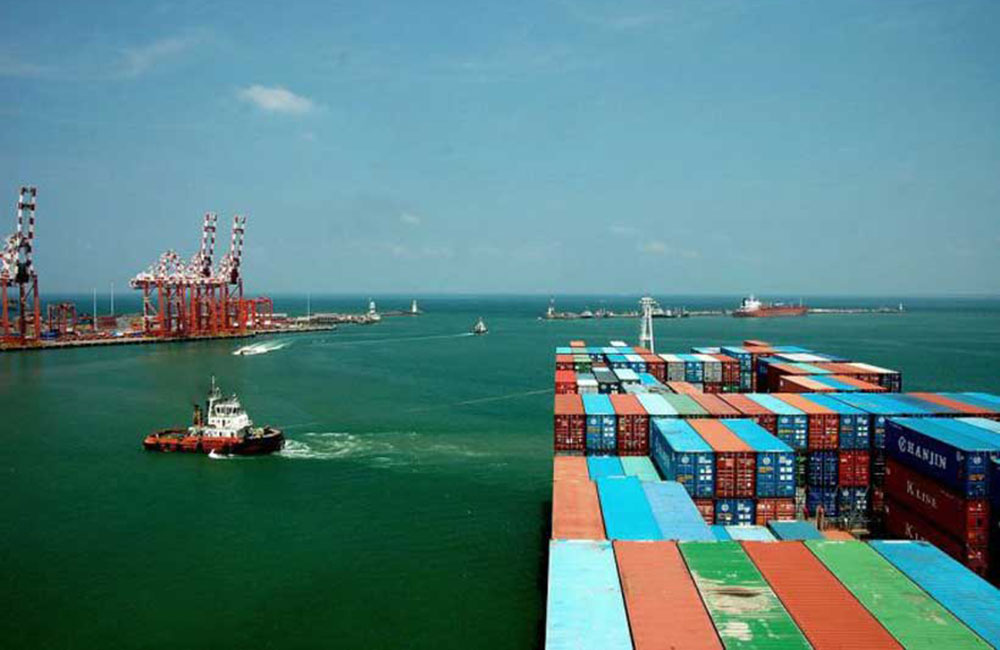
Sri Lanka's growth to recover gradually but commitment to reforms remains essential
Sri Lanka’s economic growth is projected to pick up to 3.6% in 2019 and further to 3.8% in 2020 from 3.2% in 2018, a new Asian Development Bank (ADB) report says.ADB’s flagship annual economic publication, Asian Development Outlook (ADO) 2019, forecasts a gradual recovery supported by a turnaround in the construction sector and continued growth in services.
The agriculture sector, which picked up pace in 2018 after two years of weak performance, is expected to continue growing at the same pace assuming weather conditions remain normal.
“While the economy is projected to recover over the next two years, for Sri Lanka to sustain and accelerate growth, fiscal and structural reforms remain essential,” said the Senior Country Economist at ADB’s Sri Lanka Resident Mission Mr. Utsav Kumar. “Addressing policy constraints will be critical to avoiding repeated macroeconomic pressures and to generating sustained sources of foreign exchange earnings.”
Proposals announced in the 2019 budget will support private expenditure and thus growth. The public investment to gross domestic product (GDP) ratio is expected to pick up and will be an impetus to investment and the construction sector. Overall, the budget aims to keep the primary balance in surplus in 2019 and 2020 and reduce the fiscal deficit further, thereby maintaining the path of fiscal consolidation.
Headline inflation, as measured by the national consumer price index, is expected to inch up to 3.5% in 2019 and further to 4.0% in 2020 stemming from a pickup in economic activity, base effect for inflation, and a strengthening in nonfood and core inflation observed since late 2018 and early 2019.
The current account deficit will drop to 2.5% of GDP in 2019 and increase marginally in 2020. A recovery in agriculture exports, continued increase in tourist earnings, and a slowdown in vehicle imports will contribute to a decline in current account deficit. Though the impact of Brexit on the overall Sri Lankan economy is estimated to be marginal, a downside risk to the garment sector emanates from a no-deal Brexit scenario involving a possible tariff escalation between Sri Lanka and the United Kingdom. The large repayments on account of external debt servicing and political uncertainties may affect market sentiment and exert pressure on the Sri Lankan rupee.
A key policy challenge for the Sri Lankan economy is recurrent weather-related disasters in 2016 and 2017 that have had multiple impacts as evidenced by slow economic growth, high domestic food prices, a high oil import bill, high government spending, and high number of food-insecure households limiting daily minimum calorie intake. With a large proportion of the population close to the poverty line, gains made in poverty reduction over the past two decades may be at risk from exposure to disasters. Sri Lanka needs to focus on areas prone to disasters and to move toward a more disaster-resilient economy by preventing and mitigating consequences of weather-related hazards. Efforts also need to be made toward mobilizing funds for risk reduction and adaptation, establishing the right policy framework, and building institutional capacity.
(Modern Diplomacy)
Page 331 of 510
